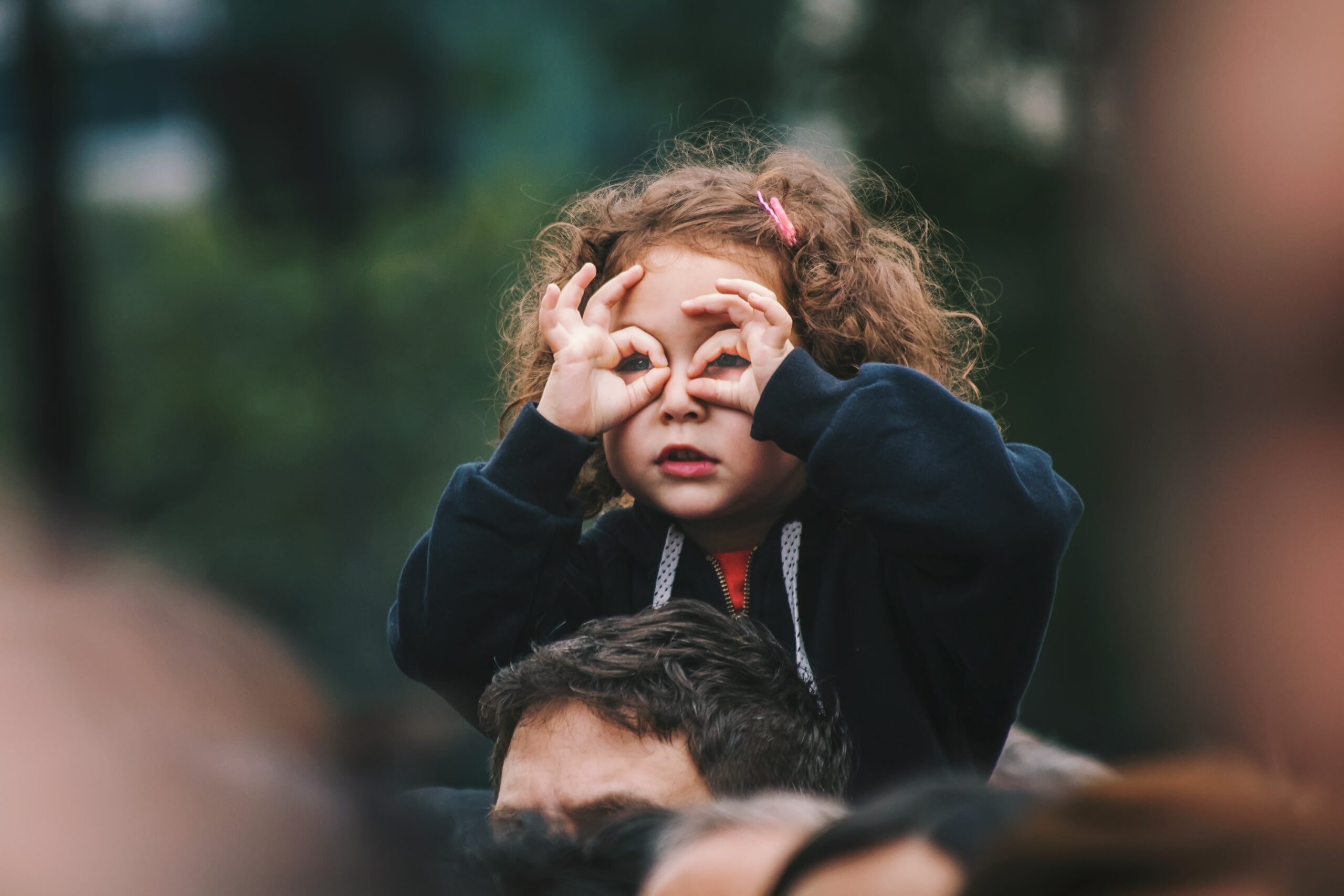
by Kayane Doumanian | Jan 4, 2021
“The measure of intelligence is the ability to change.”
Albert Einstein
Without any warning, the year 2020 unfolded and disrupted life as we knew it. It is undeniable that we were all affected by the pandemic and the changes that followed. To some degree, restrictions seem to have become the new normal. Although it is clear that the impact has been experienced differently among individuals, 2020 forced all of us to change. At least, on the outside.
Change cannot be forced upon any of us. Temporary rules can modify our routine, restrictions can take away a certain freedom, but ultimately, true change happens within. Self-development starts when we realize that the way we used to think and behave no longer corresponds to the way we want to live. When we understand and accept this idea, a part of us has already shifted outside of our comfort zone. For many of us, 2020 has opened the door to welcome the change we needed. Will we walk through it?
Last year, we realized that life can certainly be lived differently when our routine is reconfigured. We may be able to work remotely, we can benefit from a deeper connection with nature, and healthy boundaries appear more essential than they had been in the past. 2020 has been the year where we focused on a disease. We focused on death, restrictions, and cures. We also worked on getting things back to normal as we kept waiting for our old life to make its come back. Things did change, but did we take the time to focus on us and how we adapted to those changes? Did 2020 challenge us positively? Here are 3 ideas that can transform the way we think and connect with others.
1. Gratitude matters a great deal.
The concept of feeling grateful seems to have gained some momentum over the last few years. Yet, gratitude is not a trend nor an abstract philosophical idea. Being grateful encourages us to observe life through a different lens. When we decide that what we have is enough to become our best self, we no longer look for more things to want, but rather for ways to be at peace with who we are. Life appears worthwhile as every obstacle is seen as an opportunity to learn and grow. Gratitude turns our focus from the external world to our very own potential.
Gratitude is an activity in which all family members can engage. It might not come naturally at first, but as we learn to appreciate everything that surrounds us, we will definitely engage in it more instinctively. Many studies have shown that gratitude changes the way our brain processes information. The more grateful we are, the more we realize that our gratitude list could be endless. The more sufficient we feel, the more we want to give back to our community. Although I cannot list all the things for which I am personally grateful, I wanted to take the next few lines to share things that made life easier last year despite the countless difficulties.
- The internet. Without it, it would have been impossible to work remotely, see family members, host virtual parties or simply engage in activities that were nonexistent in person (online classes, movie watching, museum tours, etc.).
- The writers, researchers, scientists, professors, and other academic intellectuals who wrote, explored, tested, and shared their knowledge on everything that happened in 2020 from healthcare to politics. They helped me understand the events that were taking place and shaped the next course of action.
- The people around me (friends and family members) who helped me keep my interactions alive. When the lockdowns hit all of us, those were the people who managed to make my life enjoyable, from near or far.
2. Reorganizing our priorities can lead to a happier life.
Many people were forced to reorganize their year because of layoffs, plan cancellations, travel restrictions, significant health issues, etc. When our goals cannot be achieved due to external factors, we are compelled to rethink our projects and sometimes reevaluate our priorities. When most of our life aspects have turned into a routine, it is generally more difficult to change those old habits. It takes a dash of motivation combined with some serious discipline to create a meaningful difference.
Last year, external changes happened without our need to think about it. We needed to alter our habits for health purposes. This new routine was imposed on us. But at some point, it’s important to take the time and reflect on the way our life has changed and genuinely think about our priorities. What really matters the most? Are there things that we were prioritizing in the past which appeared to be less important in the course of the year? Are there things that we didn’t have or paid attention to that mattered much more than we thought? Those are the questions that we need to ask ourselves to redesign our path to a more meaningful life.
Ultimately, the definition of a happier life is subjective. We decide what happy means. We decide what matters and what doesn’t matter to us. Last year forced us to reconsider our routine. Perhaps, it has also sent us a message to reconsider our priorities and redefine happiness.
3. Healthy connections with other beings are essential to survive.
Humans are interconnected. They can’t survive alone, as they thrive around other beings. Some might feel the need to connect with animals while others might search for human contact. 2020 has truly addressed the issue of being isolated and the desire to interact with someone in order to feel alive.
Therefore, because connections are so important, they not only need to exist but to also be healthy. They need to help us become kinder and more empathetic. They need to provide as much support and love when we feel sad as excitement and passion when we want to share good news. Connections with others are part of our mental health. They are also part of our success. They provide a good description of the way we see ourselves and the world that surrounds us.
Last year inherently reminded us of the essential people in our life. In parallel, it has also brought light on new ones whether they were online connections, distant family members or older friends. Our attitude towards those individuals, our ability to reach out and be kind in chaotic times is fundamentally the direction we want to take when considering change. In 2020, did we connect with the people who mattered most to us? Did we feel lonely and unable to make contact with anyone? Why? By answering those questions, we will be able to better understand the kind of relationships we have and the extent to which we would like to change them in the future.
Change starts when we take a break from our routine and look around. Growth takes place when we understand our responsibility behind every choice we make and every behavior we adopt. So, as we welcome 2021, let’s all take a deep breath and accept our past experiences. Let’s consider ways to improve our life not by changing what’s on the outside (our weight, our house or car) but by deeply transforming our path to happiness by addressing chronic dissatisfaction, wrong priorities and isolation.
I wish you all a meaningful 2021, may it take you where you need to go.

by Kayane Doumanian | May 10, 2020
Change happens by listening and then starting a dialogue with the people who are doing something you don’t believe is right.
Jane Goodall
With any human interaction, when someone is talking, someone is hopefully listening. That is the beginning of a dialogue. While we have all been taught in school to not interrupt when someone is talking, to always be thoughtful in the words we use, and to reply truthfully, there are many emotional obstacles that could prevent us from doing so while talking with someone. In Active Listening (Part 1), I presented guidelines to become a better listener by learning to focus and be more attentive to the speaker. In this post, I focus on obstacles that we might experience while communicating with someone, which are directly interfering with the depth and the purpose of a conversation. I hope that this will give some of us more insight and ways to improve our communication style as a whole.
The first obstacle to a healthy conversation is when we take someone’s words personally. That type of behavior pushes our brain to go through all kinds of feelings and we might often feel attacked. For instance, during a conversation, we hear a critique, a comment, even a benign opinion about something or someone and feel that it goes against our values (what we think, believe in, or feel). Consequently, we often reply with negative emotions and do not consider the words we use, the other person’s perspective or whether or not what we are saying is relevant to the conversation. We are in “defense mode” and feel that we need to justify ourselves. Replying with an emotional mind will start conversations where we say things we might regret, things that are not true or things we don’t mean. If we know that we have a tendency to get emotional during a conversation or to take things personally even when it does not directly concern us, it could be useful to take a step back, to listen to what the person is saying without trying to directly reply. Such conversations are a great way for us to start questioning ourselves: How do I feel and why?
The second emotional obstacle is believing that the other person is wrong in his or her reasoning. This is where perspective comes in and helps us realize that there is always more than one truth. As a side note, I am only targeting conversations where people share opinions and feelings, and not academic knowledge. Perspective is an interesting topic and will soon have its own post. To put it simply, having perspective is accepting the fact that there are other ways of thinking, feeling, and doing things regardless of our own values. In order to understand that, we need to accept the fact that everybody comes from a different background with different values. Therefore, their way is right for them as much as ours is right for us. So next time someone tells us something that just feels so wrong, let’s listen to them and understand where they come from. If we have a hard time, let’s ask questions. Let’s do our best to understand why they feel or think a certain way. It’s only when we do our part of the listening that they will be willing to meet us half way to listen to our point of view.
The third reason, and we certainly have all experienced it once, is that over time some people have become emotional triggers for us. When we see them, hear about them, or talk to them, we start becoming either agitated, or uninterested in having a conversation with them. Some family members, coworkers, friends, or even a spouse could shut us down or create feelings of resentment, anger or guilt before a conversation ever begins. In this case, listening seems hard and sometimes even impossible depending on how deep and for how long the triggers have been present. In this case, it is important to identify these people, become aware of the issue and the triggers that accompany them. Again, we need to ask ourselves, how do I feel when talking to this person and why? If we believe that we feel resentful, guilty, depressed or any other disruptive feeling, are we willing to work on it? These are all questions that only WE can answer after becoming fully aware of the issue.
Ultimately, actively listening to someone is work. It takes effort to know ourselves, to accept that others are equally entitled to their ideas and opinions and that by listening to them, we can learn not only about their background and understand their perspective, but more importantly, we can learn about ourselves and our ability to communicate better.

by Kayane Doumanian | May 1, 2020
One of the most sincere forms of respect is actually listening to what another has to say.
Bryant H. McGill
I first heard the term “active listening” in a psychology class. Over time, I learned that this term was more than a concept. In fact, it is an essential skill of any kind of dialogue, as it allows the listener to be in the present and focus on what is being said, while the speaker feels more comfortable to share feelings and thoughts.
The feeling of being understood is always rewarding, yet it does not always take place in daily interactions. From small exchanges to more significant ones, we have all experienced the feeling of being misunderstood and have probably misunderstood something as well. Misunderstandings can be heard through comments such as “That’s not what I’m talking about!” or “You didn’t listen to me!” Emotionally, misunderstandings can create loneliness, decrease self-confidence as well as generate feelings of contempt or anger.
So why don’t we communicate more efficiently? The easiest answer is because we don’t know how to do so. In reality, people start communicating and listening at home by modeling what they see from their parents. They continue learning on playgrounds, in classrooms and at work with their colleagues. Just like other social skills, people discover the concept of dialogue through their own experience. Although it can be difficult to change the way we listen to others, we can practice and become better at it every day. Ultimately, how well a person listens to another will make a significant difference in his or her present and future relationships.
Here are a few simple guidelines that can be implemented by anyone wanting to become a better listener.
The first rule is to pay attention. What does that mean? Unless it is a phone conversation or an irrelevant discussion, the listener needs to be in direct eyesight with the person who is talking. Yelling from another room or cooking while talking doesn’t show the speaker that we are paying much attention to what he or she is saying. Similarly, talking through text or social media doesn’t give our full attention to the person and the message. Establishing eye contact, and noticing body language are important elements of actively listening to someone and showing him or her that we are present and focused in the moment. Therefore, to have a meaningful conversation with someone, it is important to stay away from anything that could distract us.
The second rule, and an essential one, is to remember that listening doesn’t mean to mentally prepare for an answer while the speaker is still talking. Thinking about an answer while someone is talking can not only prevent the listener from understanding what is being said, but it can also change the focus of the conversation from the speaker to the listener. For instance, if the speaker is sharing feelings of anxiety and fear because of an upcoming doctor’s appointment and we reply with something such as “I actually like going to the doctor, it’s better to be preventive than going later to fix something more serious”, we have completely disregarded the person’s feelings and have changed the focus on us. In this situation, a good listener shows to the speaker that he or she is there, and has heard the feelings of anxiety. Instead of telling the person what we might do or not do in that same situation, we can ask the speaker what would help him/her? Or how has he/she handled a similar situation in the past? Questions help the listener understand and show the speaker that we care.
The third rule is to keep feedback relevant to the situation and judgment honest and respectful. Giving our opinion or making a judgment to someone who is sharing with us something personal is not helpful. Unless the person is directly asking for our personal opinion, it is often not necessary and therefore, useless in active listening. This guideline can be difficult for some of us to follow. We might be tempted to share something personal that we believe would be interesting or useful in a given situation. We might also interrupt because we believe that the thought the speaker just shared is absurd, false or simply annoying to us. That’s exactly when we need to be self-aware of when our opinion is needed and when it isn’t.
Ultimately, we have to treat the speaker the same way we would want to be treated when we find ourselves in the same situation. Choosing words carefully and showing to the person that we don’t need anything else but his or her trust is a fundamental rule of any kind of communication. This cannot only improve relationships but also establish a strong foundation for self-respect.

by Kayane Doumanian | Jan 1, 2019
People are very open-minded about new things – as long as they are exactly like the old ones.
Charles Kettering
Saying that we all have busy lives in an understatement. Most people juggle between jobs, school, and never ending family duties without even noticing how time flies. Before realizing it, 5 years have passed by and you don’t remember much of it. A couple of birthdays, Christmas and summer parties, a cousin’s wedding, another’s graduation, that’s how much most of us can recall from our last 5 years. What happened to the rest of the time? Countless evenings, many weekends with friends, family gatherings, favorite TV show finales, sushi date nights, random road trips, funny pictures… Yes, those memories existed. At one point, they even made us very happy. Now, they are buried under a thick layer of daily routines.
Let’s take a second and ask ourselves: when was the last time that we did something for the first time? Whether it was traveling, trying a new restaurant, talking to a stranger, when was the last time that we did something completely new? If you remember it and it wasn’t that long ago, you are lucky! You might be more adventurous than most of us are.
In 2019, I want to challenge myself to do something new every day. I want to take the time to look around me and find 10 ways to replace what I have always done the same way: cooking new food, exploring the city at night, listening to a new genre of music, watching foreign movies, wearing different colors… and the list can go on. New things don’t have to be expensive. They are accessible to all of us, we just need to be aware of what can be done differently to break our daily routine. As my best friend would say, let’s get out of the “cage of normality” for whatever comes out of it will always be dull.
So tomorrow, skip your usual TV show for something new that you have always wanted to do. Find a new itinerary to drive back home after work. Switch the usual radio station for something that your ears are not used to. Meat eaters, try to be vegetarian for a day. Perhaps you can research seasonal fruits and vegetables that you have never tried before. Coffee lovers, try some exotic teas. Do it not because you have to, but because you took the time to think about it and want to. The opportunities are endless and that’s what makes it possible and much fun. Doing things differently will give you the opportunity at the end of the year to say, “yes, I’ve tried it! And quite honestly, you should too.”




